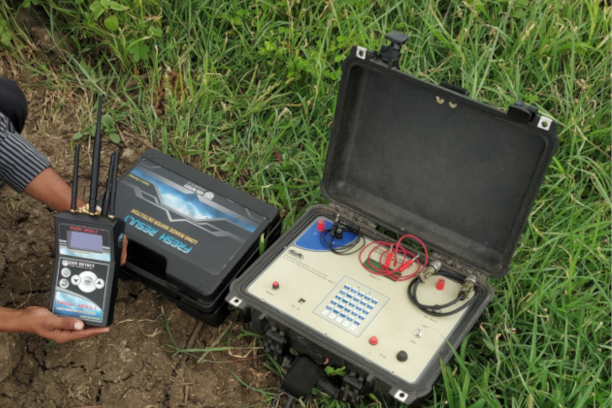Water is life. Yet, its most crucial source—groundwater—remains hidden beneath our feet. This vital resource supports drinking water, agriculture, and industries, especially in regions where surface water can't meet demand. But did you know that mismanagement and over-extraction of groundwater are leading us toward severe water crises?
This is where hydrogeological surveys step in. These surveys are essential to understand and manage groundwater sustainably. Let's dive into why they're so important and how they contribute to a better future.
What is a Hydrogeological Survey?
Hydrogeological surveys study groundwater systems. Experts analyze how water moves through soil and rocks, where it collects, and how it can be safely used.
It’s like creating a map of hidden underground water reservoirs. Without this understanding, we can’t figure out how much water is available or how fast it’s running out.
Why Does Sustainable Water Management Need Hydrogeological Surveys?
Achieving sustainable water management means balancing the water we use with the water nature can provide. Here's how hydrogeological surveys help in this:
- Understanding Groundwater Levels and Recharge Rates: Surveys provide data on how much water is being replenished naturally, preventing over-extraction.
- Avoiding Over-Extraction: Highlighting usage limits to prevent issues like drying wells and ecosystem interference.
- Locating Clean Water Sources: Identifying clean and usable water sources for better community health.
- Climate Change Adaptation: Helping locate hidden groundwater reserves and guiding water policies to adapt to rainfall and temperature shifts.
How Do Hydrogeological Surveys Impact Everyday Life?
Hydrogeological surveys benefit:
- Farmers: Helping them plan irrigation from reliable water sources.
- Cities: Ensuring long-term drinking water supplies.
- Industries: Securing sustainable resources for operations.
For instance, many regions in India are water-stressed due to unregulated water usage. Hydrogeological surveys have helped identify alternative groundwater sources, supporting agriculture and providing drinking water in dry zones.
The Bhoojal Survey: A Groundbreaking Initiative
India faces a looming groundwater crisis. Over 60% of irrigation and 85% of drinking water come from groundwater. Misuse of this resource has led to falling water tables in several regions.
The Bhoojal Survey applies advanced hydrogeological techniques to assess groundwater availability and promote its sustainable use. We aim to:
- Map critical groundwater zones.
- Reduce dependency on over-extracted areas.
- Spread awareness in local communities about sustainable water use.
The Long-Term Benefits of Hydrogeological Surveys
When applied effectively, hydrogeological surveys can:
- Restore balance to stressed aquifers.
- Reduce water conflicts in regions facing scarcity.
- Guide policymakers to create water-friendly strategies.
Hydrogeological surveys combine science, technology, and societal action to ensure everyone has access to clean water—forever.
How Can You Contribute?
Sustainable water management isn’t just a government responsibility—it’s about all of us. Here’s how you can help:
- Practice water-saving habits like fixing leaks and reusing water.
- Support hydrogeological projects like Bhoojal Survey.
- Spread awareness about the importance of conserving groundwater.
By being mindful of groundwater usage, we can contribute to the bigger picture. Together, let’s prioritize sustainable water management and safeguard our future.
In Conclusion
Sustainable water management starts underground. Hydrogeological surveys provide the foundation for protecting our water resources. They ensure that communities, businesses, and farms have enough water tomorrow, not just today.

